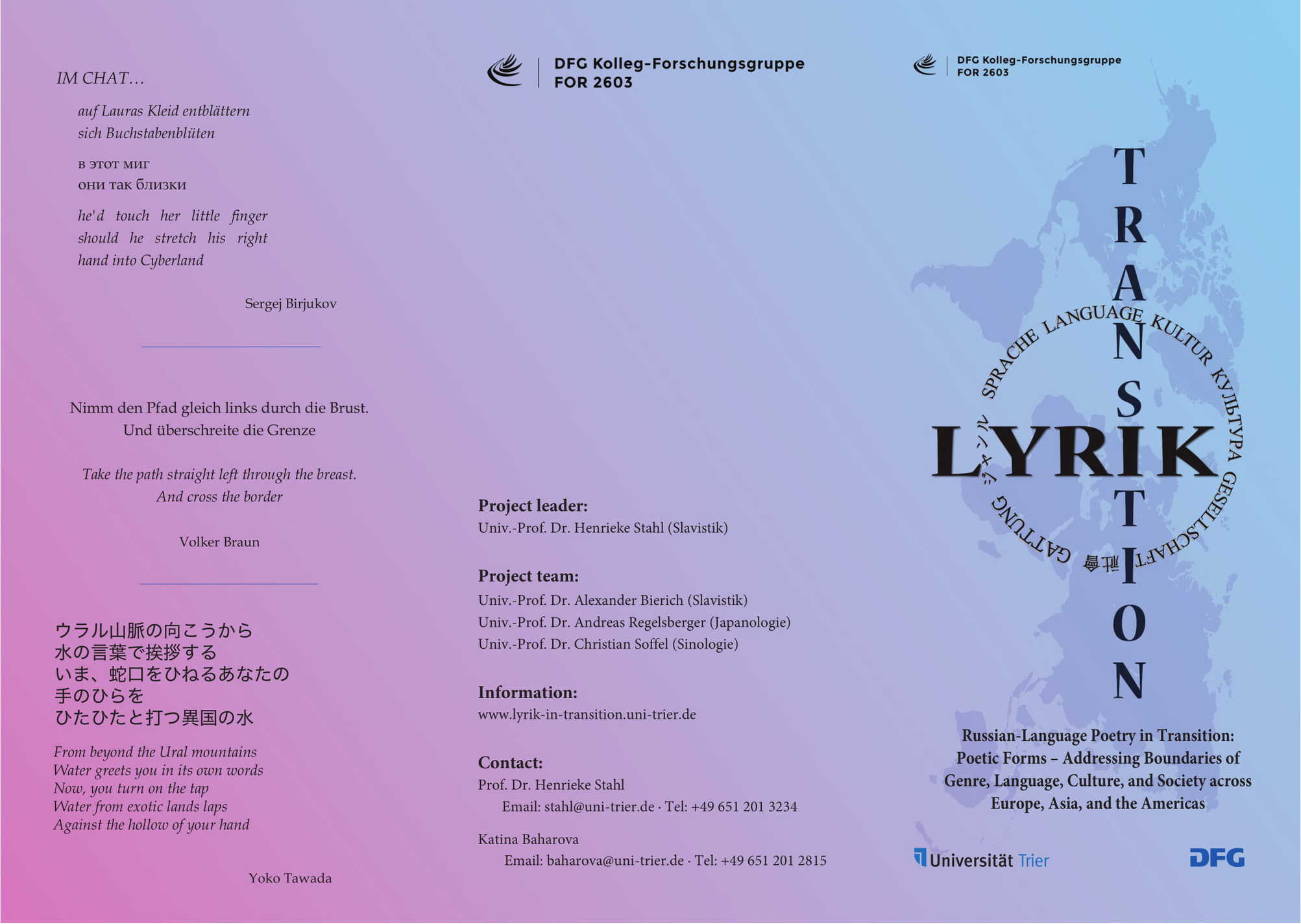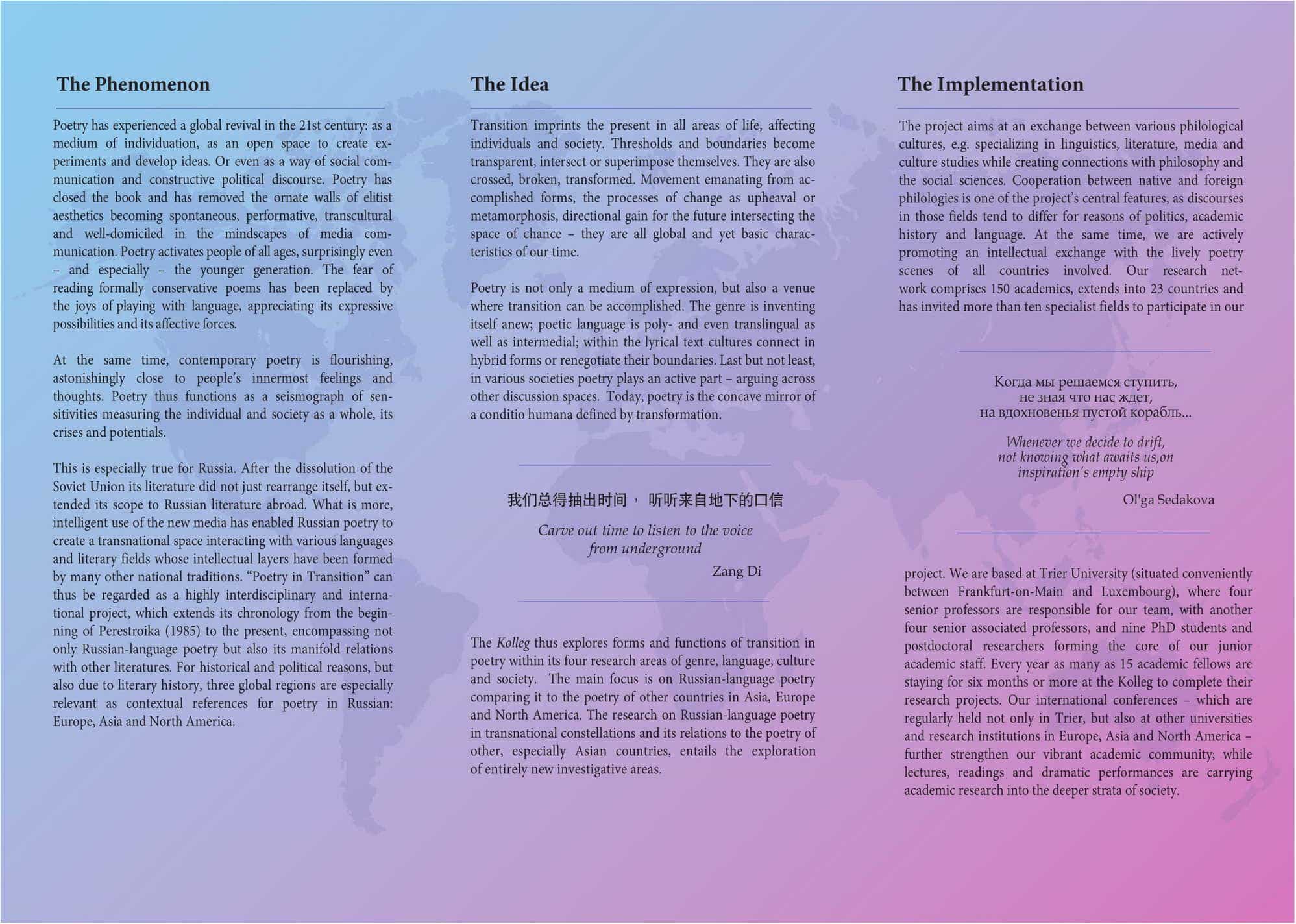
FOR 2603 2017 – 2023
Poetic Forms – Addressing Boundaries of Genre, Language, and Culture Across Europe, Asia, and the Americas
Poetry has experienced unexpected popularity and a surge in productivity since the end of the 20th century despite being a rather marginal and elitist genre in Europe. People of all social groups, age groups, languages, and cultures are not only reading poetry but also writing it. This is particularly true in Russia. Following the collapse of the Soviet Union, writers, scholars, and critics reorganized themselves and expanded their attention to include international literature in Russian. By taking advantage of new possibilities in media and communication, Russian-language poetry has spread throughout a transnational field, engaging other languages and nationally defined literatures.
The proposed project investigates this research area, spanning a period from the beginning of the Perestroika (1985) to the present. On the basis of historical, political, and literary factors, the project limits its scope to the role that Russian-language poetry plays in three regional contexts: Europe, Asia, and the Americas. In all three cases, a prominent and growing exchange exists whether due to emigration, literary influence, or geo-graphical proximity. And, in each case, this project takes the necessary step of accounting for the conditions of poetry specific to native as well as relational circumstances.
The guiding question of this project is transition, a key feature of contemporary poetry, in its multiple forms and functions. In contemporary poetry, transition refers specifically to four types of boundary, corresponding to the following four research areas: boundaries between (F1) genre(s), (F2) language(s), (F3) culture(s), and (F4) society/ societies.
During the initial application phase, the project will focus on Russian-language poetry and its significant literary relationships to German, Chinese, and Japanese poetry. In the extension phase, the research area will expand to include (a) poetry in English and the Romance languages, (b) contemporary poetry within other media, genres, and disciplines, and (c) comparisons among different kinds of genre transitions.
The team proposing this project benefits from a unique constellation of disciplines and researchers, including a network of more than 500 individuals who hold international acclaim in the scientific community for their engagement with poetry at the University of Trier. This network is optimally qualified to address the questions and research areas described above. Based in the Department of Slavic Studies at the University of Trier, the project will thus establish a one-of-a-kind center for international research on genre, media, and culture using a comparative framework distinctively significant to the context of contemporary poetry.

